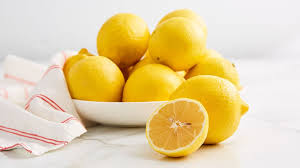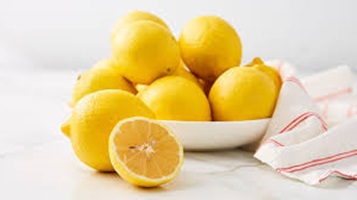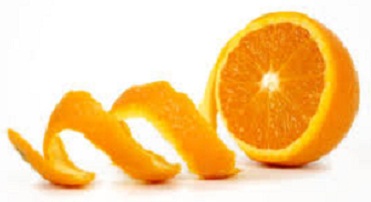Lemons, the Ultimate Natural Cleaning Sidekicks
Lemons, the Ultimate Natural Cleaning Sidekicks
We all love lemons; they’re not just for your culinary adventures anymore; they’re an eco-friendly cleaning powerhouse.

First and foremost, they’re natural, reasonably priced, and versatile. In addition, they’re packed with antibacterial properties and a fresh scent that outshines most chemical cleaners.
In this guide, we’ll look at unique ways to harness the power of lemons for a cleaner, fresher home.
Lemons, the Ultimate Natural Cleaning Sidekicks
Lemons are the star of the fruit bowl when it comes to natural cleaning. Their acidity is the key to their natural cleaning power.
They are great for degreasing, and whitening, and have antibacterial and antifungal properties. Also, they contain citric acid and d-limonene, a powerful degreaser and solvent.
Lemons are fantastic cleaners, credit to their acidity. This makes them ideal for a whole host of jobs around the house, from making your whites brighter to removing stains from your chopping board.
They’re as useful around the home as bicarb, white vinegar, or soda crystals.
Why Lemons Are Effective Cleaners
Lemons are well-known for their natural antibacterial and antiseptic properties.
Packed with citric acid, they assist to break down tough stains, cut through grease, and eliminate odors.
Outside their cleaning capabilities, they are also non-toxic and eco-friendly, making them a household staple for those looking to lessen their environmental impact while keeping their space sparkling clean.
The Science Behind Lemon Cleaning
Lemons contain citric acid, a natural cleaner with strong antiseptic and antibacterial properties.
moreover, they are full of d-limonene, a powerful grease-cutter. As a result, when you use lemon for cleaning, you are combining both antibacterial and degreasing benefits.
The Chemical Properties of Lemons
Lemons contain more than a few key compounds that contribute to their cleaning power:
- Lemon oil: Contained within the rind, this oil can cut through sticky residues while leaving a fresh scent.
- Citric acid: This natural acid is effective at dissolving mineral deposits, grease, and grime.
- Antimicrobial properties: Lemons can kill various types of bacteria and fungi, making them a natural disinfectant.
Ideas and Hacks for Lemon Cleaning
From the kitchen to the bathroom, lemons can spruce up almost any space. Here are some effective ideas to get you started.
Kitchen Wonders
- Microwave cleaner: Heat a bowl of water with lemon slices. The steam will loosen gunk, making it easier to wipe away.
- Chopping board sanitizer: Rub half a lemon on the surface, let it sit, and rinse.
Bathroom Brilliance
- Shower door shines: Rub the lemon over the doors and rinse for a dazzling shine.
- Toilet bowl freshener: Combine lemon juice and baking soda for a refreshing scrub.
General Home Care
- Air freshener: Boil lemon peels for an all-natural home scent.
- Metal polish: Salt and lemon juice will bring tarnished copper and brass back to life.
Benefits of Using Lemons for Cleaning
By going for lemons as a cleaning agent, you not only utilize a natural tool but also reap several benefits, such as:
- Eco-friendly: No harsh chemicals that can harm the environment.
- Cost-effective: Lemons are inexpensive and readily available.
- Pleasant aroma: Leaves your home smelling fresh and clean.
- Versatile uses: You can use them for a wide range of cleaning tasks.
Conclusion
In summary, lemons are a natural, eco-friendly cleaning powerhouse. From sanitizing surfaces to removing tough stains, they offer numerous benefits for a cleaner home.
It’s time to add this citrus wonder to your cleaning toolkit—embrace these tips and enjoy a fresher, greener home!

FAQs
What Are the Benefits of Cleaning with Lemons?
Lemons have natural antibacterial and antifungal properties, making them highly effective for cleaning.
Their high acidity cuts through grease and grime, especially useful in kitchens and bathrooms.
The fresh lemon scent can neutralize odors, leaving your space clean and invigorating.
Lemons are also rich in citric acid, which removes stains and discoloration on various surfaces.
From countertops to laundry, lemons act as a natural bleach alternative, making them safe for households with children and pets.
How Can I Use Lemons to Clean My Kitchen?
Using lemons in the kitchen is both easy and efficient. Cut a lemon in half to scrub cutting boards, countertops, and sinks.
The lemon’s acidity helps kill bacteria, cut through grease and leaves a fresh scent. For tougher grime, sprinkle some baking soda on the surface before scrubbing with the lemon.
Lemons can also freshen up your garbage disposal and dishwasher. Run a few lemon wedges through the disposal to deodorize and break down food particles.
You can also place a bowl of water mixed with lemon juice on the top rack of your dishwasher during a cycle to enhance cleaning and remove odors.
Can Lemons Be Used in Laundry Cleaning?
Yes! Lemons are a powerful addition to your laundry routine. Citric acid brightens whites and lifts stains.
Add half a cup of lemon juice to your washing machine during the rinse cycle to boost detergent effectiveness and freshen whites.
For spot stains, mix lemon juice with baking soda to form a paste, apply it to the stained area, and let it sit for 30 minutes before washing.
This method works well on organic stains like grass, sweat, and food.
Are There Any Surfaces I Should Avoid Cleaning with Lemons?
While versatile, lemons shouldn’t be used on certain surfaces.
Avoid natural stones like granite and marble, as the acidity can damage the finish. Similarly, avoid aluminum, which may corrode or pit over time.
For colored fabrics or delicate surfaces, test a small, hidden area first to prevent discoloration. When in doubt, consider a gentler cleaning solution.
How Do I Make a Lemon Cleaning Solution?
Making a lemon cleaner is easy! Mix one part lemon juice with three parts water in a spray bottle.
Shake well before use, spray onto surfaces, and let sit a few minutes before wiping.
For stubborn stains, add white vinegar or baking soda to the solution. Always test a small area first to ensure compatibility.
Can I Store Lemon Cleaning Solutions for Later?
Yes, but store lemon solutions in a cool, dark place to maintain their effectiveness.
Use an airtight container, label with contents and date, and ideally use within a week for freshness.
If the solution loses potency or smells unusual, discard it. Always inspect before use for safety.
Are There Safety Concerns When Cleaning with Lemons?
While generally safe, lemon juice can cause skin irritation, especially if you have sensitive skin. Wear gloves for concentrated cleaning tasks.
Additionally, rinse surfaces thoroughly after using lemon cleaner, especially on items that come in contact with food.


